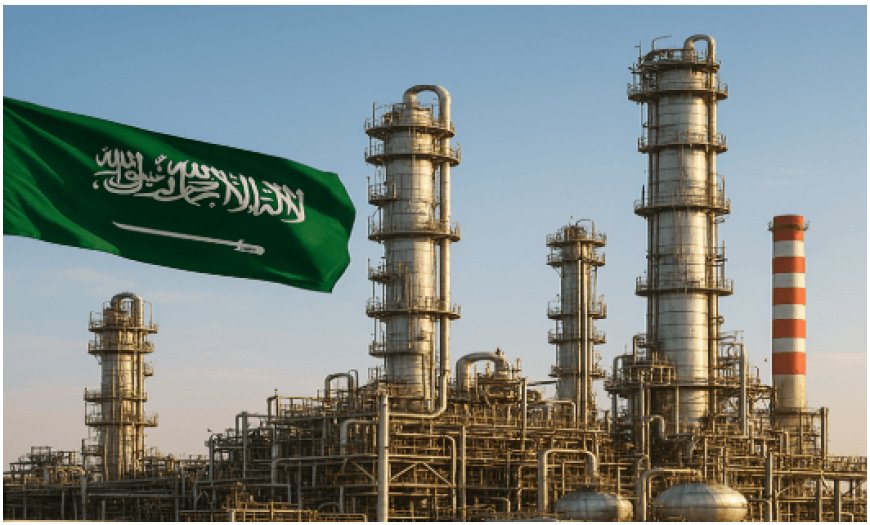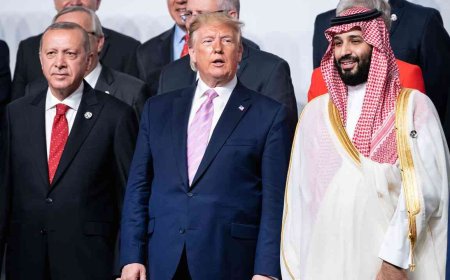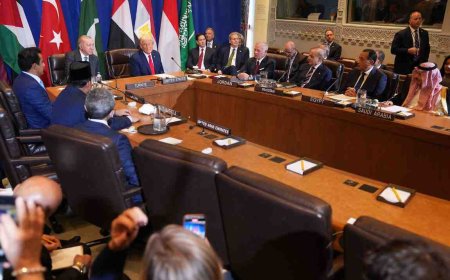Saudi Arabia Drives Bold OPEC+ Shift, Unlocking Global Market Opportunities as Oil Hits 4-Year Low
Saudi Arabia Drives Bold OPEC+ Shift, Unlocking Global Market Opportunities as Oil Hits 4-Year Low

Saudi Arabia has pushed for a larger-than-planned oil production increase within the OPEC+ alliance, resulting in a sharp drop in crude prices.
The decision, which came amid ongoing global economic uncertainty and softening demand, led to oil prices falling below $60 per barrel—marking a four-year low and triggering widespread reactions from market analysts, producers, and importing nations alike.
Saudi Arabia, the de facto leader of the Organization of the Petroleum Exporting Countries (OPEC), reportedly advocated for an aggressive output hike in recent high-level meetings, arguing that boosting supply would help maintain the kingdom’s market share in a shifting energy landscape. This stance caught several OPEC+ members by surprise, particularly those already struggling with fiscal deficits and low production margins.
The oil market responded swiftly. Within hours of the announcement, global benchmark Brent crude fell to below $60 per barrel, a price not seen since the height of the COVID-19 pandemic. West Texas Intermediate (WTI) also mirrored the plunge, sparking concerns across oil-dependent economies, especially those within the developing world. The last time prices dipped this low, oil producers faced severe budget constraints, forced investment cuts, and widespread economic stress.
Analysts are interpreting Saudi Arabia’s move as a strategic shift in response to several converging trends. Firstly, a slower-than-expected recovery in global industrial demand, particularly from China and parts of Europe, has kept pressure on prices. Secondly, the increasing adoption of clean energy technologies and government-led decarbonization efforts in Western economies are gradually eroding traditional demand for fossil fuels. Thirdly, the U.S. shale industry has rebounded with improved efficiency and lower breakeven costs, creating additional competition in the global market.
By advocating for increased production, Riyadh may be aiming to pressure higher-cost producers and assert dominance in a more competitive energy environment. However, this strategy comes with risks. A prolonged period of depressed prices could strain even Saudi Arabia’s substantial financial reserves and may unsettle economic diversification programs such as Vision 2030, which depend on stable oil revenues for funding.
The OPEC+ alliance, which includes major non-OPEC producers like Russia, has traditionally worked to manage output in order to stabilize oil prices. However, the latest Saudi-led push could test the cohesion of the alliance. Countries like Nigeria, Angola, and Iraq have expressed reservations about increasing supply at a time when many are grappling with currency depreciation, inflation, and public budget constraints. Russia, too, has signaled caution, wary of domestic political fallout from declining energy export revenues amid sanctions and economic pressures.
Saudi Oil-importing nations, on the other hand, have welcomed the price drop, especially in regions like South Asia and Sub-Saharan Africa where high energy costs have burdened consumers and strained foreign currency reserves. Lower oil prices could help reduce inflation, improve trade balances, and offer some economic relief. Major importers like India and China are expected to capitalize on the price dip to build strategic reserves and ease fuel subsidies.
Market reactions have been mixed. Saudi Stock indices in oil-producing nations dipped amid fears of declining corporate earnings, while airline and logistics stocks in importing nations saw modest gains. Currency markets also reacted, with petro-dependent currencies such as the Russian ruble and the Nigerian naira weakening, while importers saw marginal gains against the dollar.
Beyond economics, the move also holds geopolitical implications. A prolonged price war—reminiscent of the 2020 Saudi-Russia standoff—could alter diplomatic equations within OPEC+, affect investment flows into energy infrastructure, and reshape alliances. The U.S., for its part, may view the production increase with caution. While cheaper oil can aid consumer spending and ease inflation, it can also undercut U.S. shale competitiveness and deter investment in green energy transitions.
Environmental advocates have expressed concern over the implications of ramped-up oil production. A fresh supply glut, they argue, could delay the global shift toward renewable energy and weaken the urgency of climate commitments made under the Paris Agreement. Some warn that cheap oil could encourage wasteful consumption at a time when the world should be reducing carbon emissions.
As oil prices settle into a new range, all eyes are on upcoming OPEC+ meetings and how member countries respond to this internal push. The long-term effects of Saudi Arabia’s bold move are yet to unfold, but one thing is certain: it has reignited debates around the future of fossil fuels, global energy policy, and the delicate balance between supply, demand, and geopolitical strategy in one of the world’s most influential sectors.
What's Your Reaction?









































